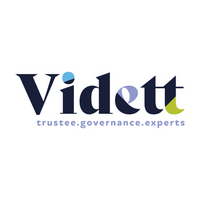Master trusts: the future directions for these popular schemes

A battleground for gaining scale
The Pensions Regulator’s master trust authorisation process already whittled numbers down, but we’ll see consolidation amongst the remaining players, including some of the ‘big’ ones. After all, employers considering these schemes will ask who the providers backing these schemes are and whether they have the resources (and heart) to continue developing a ‘delivers for all’ product in an increasingly competitive market.
Consolidation is good. It brings financial strength enabling master trust providers to invest in increasing member engagement, improving investment and retirement options and smoother administration. Combined with higher standards of governance (how many other schemes have the luxury of multiple professional trustees on their board?), members will benefit from greater oversight, support and value for money.
However, with an increase in scale comes a risk it will become harder to find the differences between each master trust. If it comes down to only small differences in fees, the market will have failed.
A focus on differentiation
The themes differentiating master trusts will become more prominent in future. Some have placed investment offering at the heart of what they do, others focus more on member engagement or at-retirement flexibility, and others again offer lowest cost. Some have set up employer and employee forums to gain feedback, giving a direct opportunity to influence scheme development.
“Members want to know someone is looking after more than just their money,” said Steve Charlton, managing director defined contribution EMEA and Asia at wealth management company SEI. This sums up exactly what we feel as pension scheme trustees too. This is where master trusts may play a big part in the future of UK pensions. Despite the importance of differentiating their scheme, the most successful master trusts in future may well be those that are able to blend understanding their members, engaging with them effectively and delivering services and features they want and need.
An Open Banking-meets-ESG era
Open Banking allows financial information to be shared securely between providers. In theory it’s been with us for two years; in practice it is very new. Master trusts that choose to deploy this framework – and do so effectively – could become pack leaders. A static website or app that lets you look at pension details for only one scheme may be helpful, but it isn’t exciting and doesn’t give your member a reason to go back and engage. In future, leading master trusts will track responses so they know what individual members are interested in and use Open Banking prompts to create targeted, timely, personal communications that will increase engagement and action.
Take your ‘typical’ millennial as an example. Environmental issues are high on their agenda and they’re not afraid of activism. The smart master trusts of the future will combine this knowledge with information learnt from their own digital communication platforms to both prompt positive member action to improve outcomes and develop their proposition. Yes, all master trusts are having to tick the environmental, social and governance (ESG) box. However, if ESG is important to you or your employees, a master trust that actually owns the assets, can take direct action on shareholder voting and influence the businesses they invest in, may be more aligned than one that invests in pooled funds and is one step removed. It comes back to differentiation.
A left-field new entrant?
Further consolidation is the future for master trusts and new entrants in the market aren’t likely any time soon. That said, there is a somewhat hazy image in the crystal ball for a time in the far distance beyond consolidation when we have a handful of super-master trusts. It is a new entrant, or possibly a couple, most likely from an industry outside of financial services. We’re seeing the rise of a few mega organisations growing across geography, technology and industry boundaries. It would be unwise to think, at the point we have true scale in membership and assets, UK pensions master trusts will remain untouched.
The author is Simon Riviere, client director at Punter Southall Governance Services.
This article is provided by Punter Southall Governance Services.
Supplied by REBA Associate Member, Vidett
Leading the way in professional trusteeship & governance







